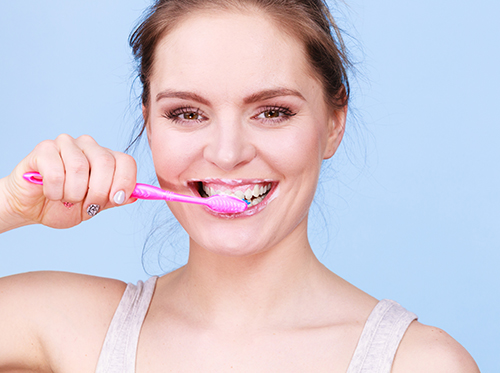Holiday Gift Ideas for Healthy Holiday Smiles
December 3rd, 2025

Need some gift ideas for family members and friends who seem to have absolutely everything? Who are impossible to shop for? Who tell you not to worry, it’s the thought that counts? Well, we have a few suggestions which will show the people on your gift list that you’ve put a lot of thought into their gifts this holiday season.
You love to see your friends and family smile, so we’ve come up with some smile-worthy ideas designed for their specific interests.
Environmental Ally
The world is becoming a more eco-conscious place, and happily this transformation includes products designed for personal care. Put together a spa basket which is good for your friend’s comfort, dental health, and the planet!
A recycled gift box filled with environmentally friendly bath products and organic cotton face cloths becomes even more mindful with the addition of bamboo or recycled plastic toothbrushes, zero-waste fluoride toothpaste tablets, and biodegradable picks and floss.
Don’t forget to include a colorful, insulated water bottle for sustainable hydration—and washing away food particles when there’s no handy place to brush after eating. Healthy planet/healthy smile.
Talented Techie
If your friend or relative is cutting edge high-tech, maybe it’s time for a dental upgrade.
Modern electric toothbrushes offer plenty of options for the tech-savvy. They come with different settings for brushing and massaging. They can let brushers know if they’ve brushed long enough, if they’re brushing too hard, or when the brush head needs to be retired. Smart models even link to apps, which can, among other things, map out any missed spots in brushing coverage or suggest more effective brushing angles.
And for an extra thoughtful touch, include a packet of plaque disclosing tablets. Chew one of these helpful little tablets and they will reveal any plaque that’s still on the teeth.
Adventure Seeker
How about a new backpack or carry-all for outdoor or travel adventures? A travel first aid kit is always a welcome addition for the person on the go.
Go the extra step and help a friend be prepared for anything with an emergency dental kit. You can find these lightweight kits in stores or online, or you can assemble one yourself with a travel-size toothbrush and toothpaste, floss, a travel mirror, cotton rolls, pain relievers, and even temporary fillings. Include a pack of sugar-free gum—it helps with altitude changes and hydration. Ask Dr. Gary Yanowitz or the team at Gary Yanowitz, DDS for suggestions!
Timeless Trendsetter
Older relatives might love a selection of modern gifts designed with old-fashioned comfort in mind, such as an automatic jar opener and a selection of jams, trekking poles for easier hiking, or wireless earbuds for enjoying music or an audio book.
For a lifetime of healthy smiles, consider adding a water flosser to your gift basket. Gum disease is a leading cause of tooth loss for older Americans. Water flossers are a great way to eliminate stubborn plaque, especially when mobility issues make manual flossing difficult. Adjustable water pressure applies just the right amount of cleaning power, and the flow can be directed to the gumline, between teeth, or anywhere necessary.
Film Buff
If your bestie likes nothing better than an evening spent in front of the home screen, consider a subscription or gift card for a streaming service tailored to his or her favorites, whether it’s classic films, sci-fi, action, rom-coms, or epic adventures.
And don’t forget the binge-watch treats! Fill a basket with dental-friendly goodies like fresh fruits, nuts, and dark chocolate. Include a collection of simple sparkling waters or a gift card for vitamin-rich smoothies. Who needs sugary candies and sodas with options like these?
No matter who’s on your shopping list, tailoring your gifts to their interests and their well-being is a great way to share happy, healthy holiday smiles with family and friends in Cooper City, FL.



